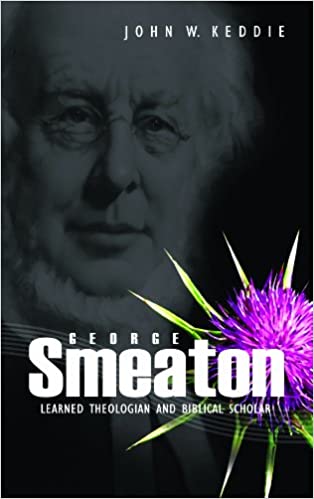Who was George Smeaton? Some may never have heard of him, while others know him only as the author of two books – one on the atonement and one on the Holy Spirit. There has never been a biography of his life, and therefore comparatively little is known of him. This book largely rectifies the situation. John Keddie sets before us the life and ministry of this man, and his contribution to the challenges and demands of his day.
Smeaton lived in nineteenth-century Scotland and was a member of the Free Church (of Scotland). He was thus confronted with the controversies that arose in those turbulent times, though he only became involved in them when he felt it necessary.
Keddie suggests that Smeaton is little known because he was not an ecclesiastical politician, rarely taking part in General Assemblies, and that he lived at a time when the rising generation of divinity students were somewhat impatient with the old orthodoxy.
Smeaton got on with ‘his job’ – teaching, preaching, pastoring – and was never sidetracked into the disputes that assailed the church, important though they were. He ministered in churches at Auchterarder and The Grange, Edinburgh (which he helped to found), and was appointed Professor of New Testament exegesis, first in Aberdeen and then in New College, Edinburgh.
The character and hallmark of Smeaton’s lecturing is important for our day – he gave advice to his students thus: ‘Live upon the truth you study; and, the more you live upon the truth, the more vividly will you comprehend it. The more close you walk with God, the more full and unclouded will be your understanding of divine things’ (p.60).
This book has chapters on subjects such as union controversy, Bible criticism, worship innovations, inspiration, the atonement and the Holy Spirit, all of which are relevant and helpful contributions to our current thinking. But the overriding feature that stands out in the life of this learned theologian is his walk with God.
He was ‘a man of singular benevolence and sweetness of disposition, universally loved for his goodness, as well as highly esteemed for his work’s sake … eminently distinguished for genuine piety, and for following after peace with all men, and personal holiness … He was a man of God’ (p.177).
There is much profit in this book and it is highly recommended.








